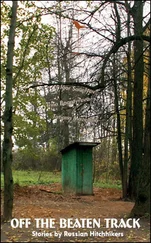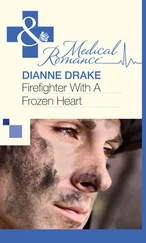“Maybe he was,” said Winter.
“Was what?”
“Filming the buildings. Maybe he wasn’t pretending.”
“It looked like he was.”
“What happened next?” Winter asked. “Did you continue watching him?”
“Yes. I watched for a bit longer, but we had the children to think about. And he turned away after only a few seconds and walked off.”
“In which direction?”
“Back toward Linnéplatsen.”
“Did you see him from the side? Or from behind?”
“From behind, I think. I didn’t watch very long. I mean, we had other things to think about. But then I remembered it again, later.”
“Can you describe what he looked like?” Winter asked.
“Well… He was sort of normal looking. The camera was in the way so you couldn’t see his face. His jacket was blue, I think, and trousers, I assume.” She gave a laugh. “He wasn’t wearing a skirt, I would’ve remembered that, and, well-that’s about it.” She was still thinking. Winter had sat thousands of times with witnesses trying to remember. Everything they said could be accurate, but it could also be totally misleading. Colors that were definitely green could be yellow, six-foot men could be dwarfs, women could be men, men women, trousers could be… skirts. Cars could be mopeds and 100 percent certainly dogs could turn out to be camels. No. No camels had cropped up in any of his cases, not yet.
Children could be children. Cease to be children, disappear. Cease to exist. Or never be children again, never be whole persons again.
“He had a cap!” she said suddenly.
“You said before he had a camera in front of his head.”
“In front of his face. I said in front of his face. And not all the time I was watching him. I remember now that you could see the cap over the top of the camera. And I saw it as well when he turned to film the buildings on the other side, if that’s what he was doing.”
“What kind of a cap?”
“Well, it wasn’t a Nike cap. Not one of those baseball things.”
Winter thought about Fredrik Halders: He often wore a baseball cap over his shaven skull. Nike, or Kangol.
“More like an old man’s cap,” she said.
“An old man’s cap?” said Winter.
“Yes. One of those gray or beige things old men always seem to wear.”
Winter nodded.
“Yes, one of them,” she said. “Gray, I think, but I’m not sure. A sort of gray pattern.”
“Was he an elderly man?” Winter pointed to himself. “Like me?”
She smiled again, big teeth, perfectly shaped, white; Nordic, if you could call them that.
“I really couldn’t say,” she said. “But he could have been about your age. Despite the cap. He walked normally, he wasn’t fat or anything like that, he didn’t seem old. He wasn’t an old man.”
“Would you recognize him if you saw him again?”
“I don’t know. But if he was wearing the same clothes, and carrying a video camera-well, I might.”
“Have you spoken to anybody else about this?” Winter asked. “Apart from Lena.” He nodded in the direction of Lena Meyer.
“No.”
“How many staff were out this afternoon with the children?”
“Er, three, including me.”
“And none of the others noticed anything?”
“I don’t know. As I said, I sort of forgot all about it. Until now.”
Winter stood up. Thought. He could see the group in his mind’s eye. Staff first, in the middle, and at the back. He’d seen a set up like that lots of times. What did they do? Pause, fuss around, carry on. It was December now. Not long to go before the holidays. Everybody was caught up in the spirit. Something to celebrate coming up. Everybody on vacation. In a way, the holiday had already started. What do you do when there’s a holiday mood in the air? You sing. Dance. Have fun. Perhaps you might want to record these moments, or this mood. Record it. Watch it again later. Record it. Keep it.
He looked at Lisbeth Augustsson.
“Did any of you have a video camera with you when you went out?”
“Er… No.”
“An ordinary camera, perhaps?”
“Er…”
He could see that she was thinking hard.
“Did any of you have a camera with you when you went out on this excursion?”
Lisbeth Augustsson looked at Winter with a curious expression.
“Good Lord! Anette had her camera with her! An ordinary film camera. She might have taken a few pictures when we were crossing the soccer field. She said she was going to take some, but I was looking in the other direction.” Lisbeth Augustsson looked at her boss and at Winter again. “She might have a picture of him!”
“Could be,” said Winter.
“Amazing that you thought of that,” she said.
“We’d have found out anyway when we spoke to the others,” Winter said. “Where can I get hold of Anette?”
Ringmar was waiting for Gustav Smedsberg. He could hear voices in the corridor, somebody trying to sing a Christmas carol. The echo was not to anybody’s advantage. A peal of laughter, a woman’s voice. Detectives winding down for the holiday.
But here we are not winding down, we’re winding up, up, up.
He called home but there was no reply. Birgitta ought to be at home by now. He needed to ask her what she wanted him to buy from the market.
He tried Moa’s mobile. “The number you have called cannot be reached at this time.”
He would have liked to call Martin, if he’d known what to say.
The phone call came from the duty officer. Smedsberg was waiting downstairs in the cozy foyer, “the charm suite,” as Halders called the reception rooms. The first stimulating contact the general public had with the police authorities, step one on the way to the ombudsman.
Gustav Smedsberg looked thin, standing on the other side of the security door. He seemed underdressed, wearing a cap that appeared to be more of an accessory than anything else. Denim jacket, a thin T-shirt underneath. Open neck. The boy’s face was expressionless; he might have been bored stiff. Ringmar beckoned to him.
“This way,” he said.
Smedsberg was shivering in the elevator up.
“It’s cold out there,” said Ringmar.
“Started yesterday,” said Smedsberg. “A bastard of a wind.”
“You haven’t gotten around to digging out your winter clothes, I take it?”
“These are my winter clothes,” said Smedsberg, scrutinizing the buttons in the elevator. He shivered again, and again, like sudden tics.
“I thought you were used to chilly winds where you come from out on the flats,” said Ringmar. “And how to protect yourself from them.”
Smedsberg didn’t respond.
They exited the elevator. The brick walls were a big help to anybody who wanted to suppress the Christmas atmosphere. The thought had occurred to Ringmar that morning. Or perhaps in his case he had lost the Christmas spirit already. Birgitta had said nothing when he got up. He knew she was awake, she always was. Silent. He’d said a few words, but she’d just rolled over onto her other side.
“Please come in,” he said, ushering Smedsberg into his office.
Smedsberg paused in the doorway. Ringmar could see his profile, a nose curved like that of his father. Perhaps there was something in his bearing reminiscent of the old man as well. And in his accent, although the boy’s was less pronounced.
“Please sit down.”
Smedsberg sat down, hesitantly, as if he were ready to leave at any moment.
“Will this take long?” he asked.
“No.”
“What’s it about, then?”
“The same thing we’ve talked about before,” said Ringmar.
“I don’t know any more about it than I did then,” said Smedsberg. “He stirred things up about Josefin, and that’s about it.”
Читать дальше












